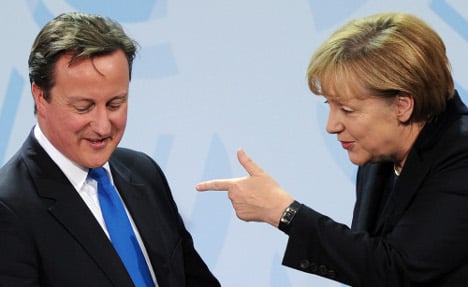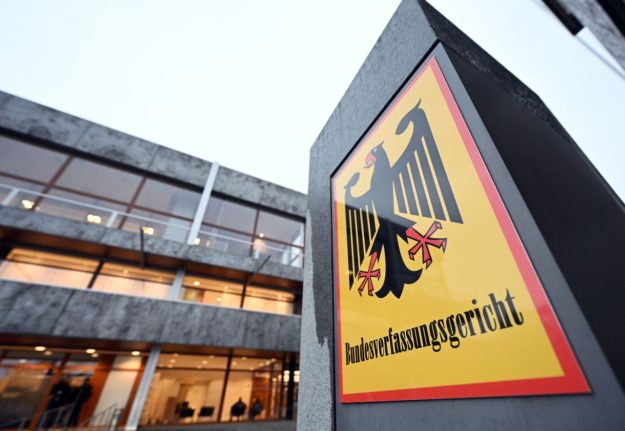So was that the night the euro was saved? Or will those ten hours on last week go down in history as the moment the European Union began to disintegrate? The leaders of the 27 EU nations certainly couldn’t have made their crisis summit any more dramatic.
Even before it began on the evening of December 8, German Chancellor Angela Merkel, French President Nicolas Sarkozy and British Prime Minister David Cameron – who was to play a key role in the coming hours – sat down together. What followed were hard, sometimes extremely hard, discussions that culminated in an announcement by the French leader shortly after five in the morning.
The coming days will decide which of the summit’s two results will have greater ramifications for Europe: The news that the eurozone countries have agreed to stricter financial policies to ensure the future of the single currency? Or that not all 27 EU members will take part in the effort?
The German position was clear from the start: Merkel wanted to change the European Union’s treaties with the backing of the entire bloc – including the 10 countries outside the eurozone. But she also left no doubt that she would broker a deal with just the euro nations if necessary. The agreement among the 17 was more important to her than the unity of the 27.
She had the French president firmly on her side. Now 23 EU member states are expected to commit themselves to introducing constitutional debt ceilings and accepting automatic sanctions if they break deficit limits.
For Merkel, these were two non-negotiable preconditions to steering a way out of the eurozone debt crisis. The new contract is now meant to be drawn up and ready by March.
But there is a high political price for the agreement. Britain and Hungary announced they will sign no such contract. The governments of Sweden and the Czech Republic, meanwhile, have said that they need to get a mandate from their parliaments.
No wonder, then, that the buck-passing already began during the long night of negotiations in Brussels.
Who is to blame for the split? Is it Cameron, who insisted that special rules must apply to Britain’s financial sector – or is it Merkel, who put the subject of a treaty change on the table in the first place? At any rate, it’s Cameron who came off worst, since he is now isolated in Europe, without having gained anything for his country’s interests.
Knowing Merkel, an adept player of power games, she will have planned for such an eventuality. She and Sarkozy had a good argument on their side: as the French president said, we cannot agree stricter rules for the eurozone and then allow Britain room to deregulate its financial sector.
But this success has not come cheap. The impression that 22 states stand firmly at Germany’s side is false. Most other heads of state are following Merkel with little enthusiasm – not out of conviction, but because they know that no solution to the debt crisis is possible without Germany. Even those that support the German vision of more budget discipline are unsure whether this is the right time or the right path to take.
The eurozone states will now agree a new contract that will exist alongside current EU law. It is a route with many potential pitfalls. Some lawyers even doubt whether such a parallel treaty is even legal, because, after all, the economic and currency union is already part of European law.
And is the risk even worth it? Are a debt limit and automatic sanctions worth breaking up the EU? As unappetizing as the answer is, at the end of the day, it will be the markets that decide. If they are convinced, then Merkel will go down in history as the saviour of the euro. If the destructive speculation continues, the German chancellor will be remembered as the one who divided Europe.
This editorial was published with the kind permission of ZEIT ONLINE, where it originally appeared in German. Translation by The Local.



 Please whitelist us to continue reading.
Please whitelist us to continue reading.
Member comments